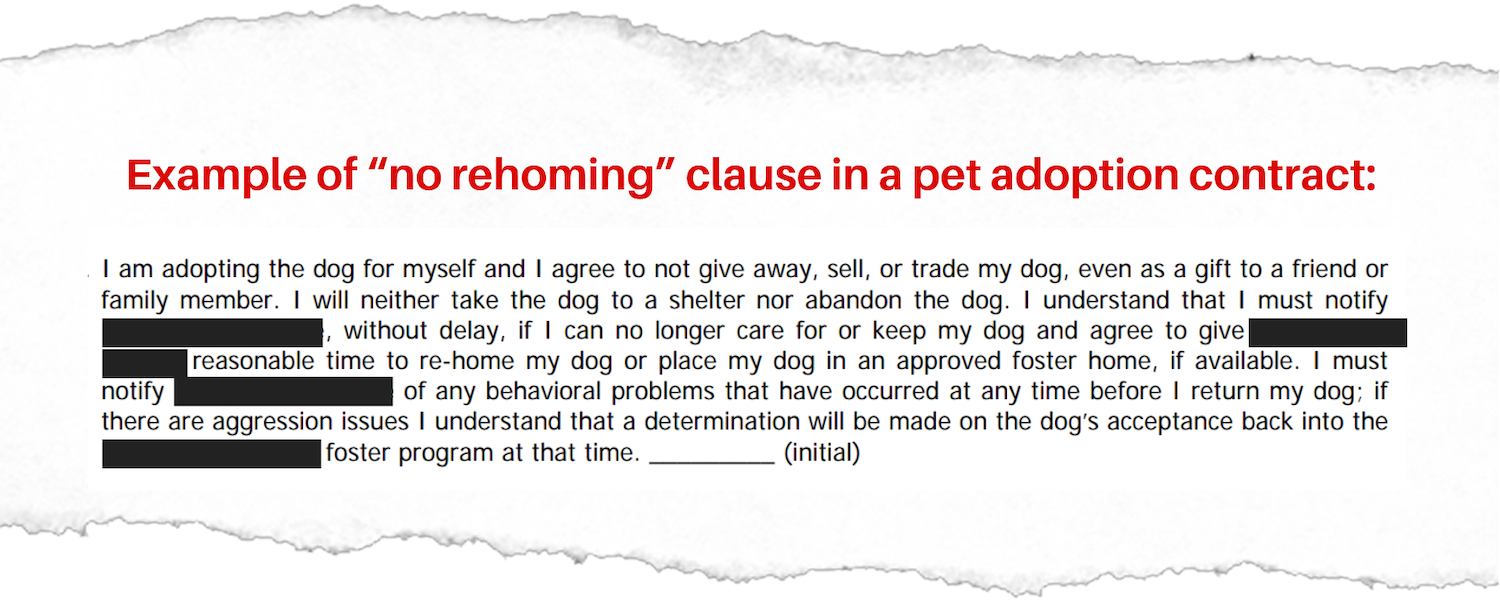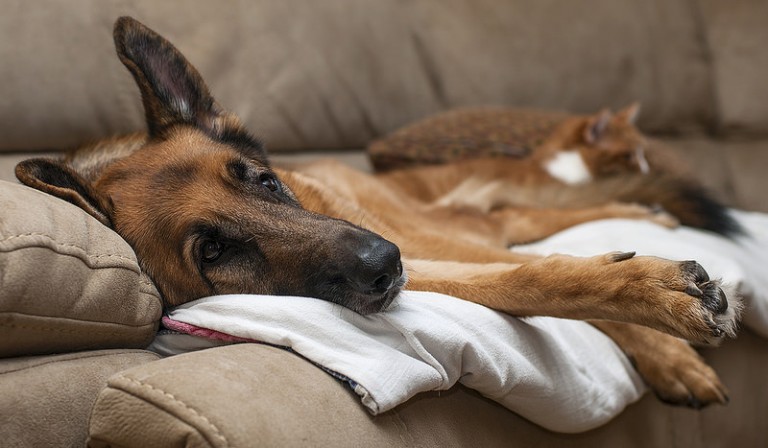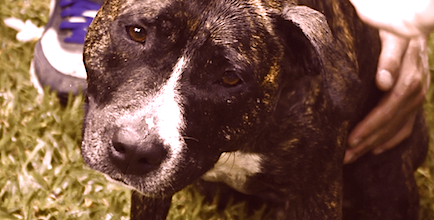Why Not to Be Ashamed If You Have to Return a Shelter Pet
Every adoption isn’t a perfect match.

We’d all like to believe that every adoption story has a happy ending.
But the truth is, not every pet adoption is a perfect match — and sometimes returning a pet to the shelter is the only option an adopter has.
After the excitement of an adoption, bringing your pet back to the shelter can be a humiliating task. Even if you’re not at fault, you can still be left feeling miserable and ashamed.
Though the experience can be rough to manage, keep in mind that you’re making the decision for the welfare of the pet.
A good shelter’s staff will understand and won’t try to shame you.

Don’t leave your pet’s safety to chance
Sign up for Petful recall alerts today.

Behavioral Changes in a Pet After Adoption
Usually you can spend some time with your potential pet at the shelter and get a good idea of their personality — energy level, attentiveness, manners, etc.
But occasionally, pets just don’t behave the same in a shelter as they do in a home.
Maybe your dog was shy and quiet in the shelter because they were uncomfortable or nervous around new people and animals. That dog was your perfect match.
But after a week in your home, the dog is blooming into a rambunctious and loud puppy — not so perfect for your little apartment.
Dogs aren’t the only ones whose personalities can take a bit of a twist in new surroundings. Cats respond to their environments as well.
Sometimes a cat who has become comfortable within the confines of a shelter cattery may seem more outgoing than they are in a new home.
Just because this cat sought your hand for endless scratches during your meet-and-greet session doesn’t necessarily mean that they aren’t the type of kitty to dart under the couch for hours on end after hearing the doorbell.
These are changes that you can’t anticipate without a “trial run.” And because a trial run isn’t an option in most shelters, you might have to consider returning the pet.

Don’t Blame Yourself for Returning a Pet to the Shelter
It’s easy to feel responsible for having to return a pet, no matter the circumstances.
If adopting your new puppy was saving them, is returning that puppy dooming them?
In most instances no, it’s not. Unless you’re returning the pet for unprovoked aggression or an untreatable illness, they are probably going to find a new home where they fit right in.
Even knowing that they’ll be adopted again, you’re still going to feel crummy. That’s normal.

A Contractual Obligation
A lot of people prefer to rehome their pets themselves.
It’s a way to relieve the responsibility from the shelter as well as meet your pet’s new family personally.
Believe it or not, though, you might be breaking your adoption contract if you rehome your adopted pet.
Many pet adoption contracts require you to return the pet to the shelter if the adoption doesn’t work out. Shelters have a vested interest in every one of their animals, and these are the types of steps they take to ensure those pets are placed in qualified homes.
One more thing: “Under no circumstances should you sell your dog online or give them away on Craigslist,” advises Dogtime editor Mike Clark.
Even if you feel a little hesitant about taking your dog back into the shelter, as long as your reason for returning them is reasonable, you’ll be welcome to adopt from that shelter again.
The staff would never blacklist a potential adopter because of an unforeseen hiccup in a previous adoption.
As Inga Fricke of The Humane Society of the United States puts it, shelter returns are not “inherently bad.”
“Why, if the relationship doesn’t work out, do we condemn the person who returns the pet and call it — and them — a failure?” she says. “Life happens, circumstances change, and even with the best of intentions, things don’t always work out.”

How to Avoid Returning a Pet
You shouldn’t feel embarrassed for returning an adopted pet, but you should take steps to avoid being in the position of having to return them.
“People really need to do their research before coming in,” Wake County (North Carolina) Animal Services Director Dr. Jennifer Federico, DVM, told The Dodo. “Be honest about the time that you have to spend with a pet, because that’s a big factor in your decision making.”
Take these precautions:
- Foster. Not all shelters allow fostering, but if it’s possible you can provide a temporary home for pets who are looking for their forever homes. You’ll have the chance to fall in love with a furry friend who’s already at your house.
- Multiple visits. Most shelters will encourage you to spend lots of time with the pet you’re interested in. Don’t just visit them in one room for 20 minutes. Go outside. Go for a walk, if possible. Visit multiple times before adopting.
- Professional training. If you see a problem arising after the adoption, consider your options before returning your pet. Is this a concern that is temporary, like a teething puppy? Is it something you can hire a professional trainer to work with?
Even with all these precautions, your newest addition might just not be a good fit.
In that situation, you should reach out to your animal shelter and schedule an appointment to return the pet.
This video offers some myths and facts about adopting a dog:

Final Thoughts on Returning a Pet to the Shelter
Having a pet adoption go wrong is a lousy experience.
After returning your pet to the shelter or rescue, you may not be immediately ready for another pet.
But after some time, consider trying again. The perfect pet could still be waiting for you in your local shelter.
* * *
This article was written by Allison Gray, a former pet adoption counselor and staff member of an animal shelter. This article was originally published in 2016. It was last reviewed for accuracy and updated Aug. 26, 2019. Allison’s previous articles have included “How Extreme Anxiety and Fear Almost Ruined My Dog” and “How Strict Animal Shelter Policies Can Cause Pets to Suffer.”







